Whey, Beef, casein, egg, hemp, rice, soy, pea – the list goes on… which is the right protein powder for you?
The purpose of this protein powder comparison guide is to take a closer look at some of the main options to consider so that you can decide on which powder best suites your needs. Each type of protein offers its own unique set of benefits, so it’s something to give some careful consideration to.
Whey Concentrate Protein Powder
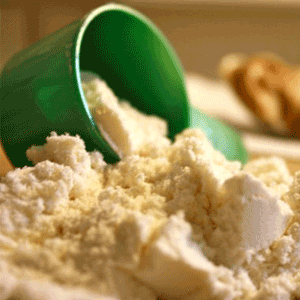 Whey is the most commonly used protein and is also a cost effective variety. Whey concentrate protein powder is relatively low in carbohydrates and fats and also offers strong immune-boosting properties, so can go a long way towards enhancing your health.
Whey is the most commonly used protein and is also a cost effective variety. Whey concentrate protein powder is relatively low in carbohydrates and fats and also offers strong immune-boosting properties, so can go a long way towards enhancing your health.
It’s also shown to provide some appetite suppressing effects as well, so drinking it throughout the day may help blunt your hunger and make sticking to a diet easier as well.
It digests at a moderate pace, so is a pretty versatile choice all in all.
Benefits:
- Fast absorption
- High biological value (BV)
- Beneficial to the immune system
- Complete protein (contains all essential amino acids)
- Gluten-free
- Neutral taste
- Price
- Availability
Drawbacks:
- Not vegan friendly
- Contains fat and carbohydrates
Who it suits best: Non-vegans without dairy allergies looking for good “bang for your buck”.
Whey Isolate Protein Powder
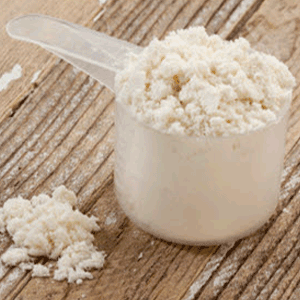 The second protein is a derivative of whey protein and is whey isolate protein powder. This protein variety is more processed than regular whey, thus many of the immune boosting properties are gone, but on the plus side, it digests very quickly, so is ideal for your post-workout meal.
The second protein is a derivative of whey protein and is whey isolate protein powder. This protein variety is more processed than regular whey, thus many of the immune boosting properties are gone, but on the plus side, it digests very quickly, so is ideal for your post-workout meal.
Buy whey protein isolate powder (Canada)
In addition to that, since it has been processed, much of the lactose will be removed so this is a good option for those who need a lactose free protein.
Furthermore, it’s also very low in calories and typically 100% protein, so a good option for those on a strict diet plan. It blends up easily in a shaker bottle with water, so a perfect go-to for after your workout.
Although typically more expensive than whey concentrate, whey isolate does contain more protein per serving so keep this in mind when comparing powders.
Benefits:
- Availability
- Complete protein (contains all essential amino acids)
- Contains less fat, carbohydrates, and lactose than whey concentrate
- Less calories per serving than whey concentrate
- Most neutral tasting of all protein powders
- Extremely easy to blend
- Gluten-free
- More pure than whey concentrate
Drawbacks:
- Cost
- May contain small amounts of lactose
- Not vegan friendly
Who it suits best: Non-vegans without dairy allergies looking for a clean protein that is easy for the body to absorb.
Casein Protein Powder
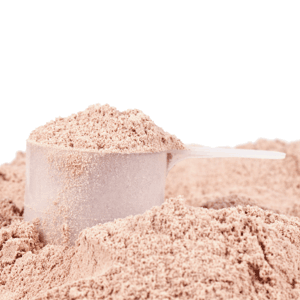 Moving along, now we come to casein protein powder. While whey isolate powders are designed to digest as quickly as possible, casein protein powder is going to digest very slowly, releasing a steady amount of amino acids over time.
Moving along, now we come to casein protein powder. While whey isolate powders are designed to digest as quickly as possible, casein protein powder is going to digest very slowly, releasing a steady amount of amino acids over time.
This makes it a terrific option for using before you turn in for the evening or throughout the day when you will be going a longer period of time without eating.
Casein protein powder is also going to be great for those who are looking to blunt hunger as well as the slow release can calm your appetite.
This one is a very thick protein powder, so also works great in many of your baking recipes, but on the flip side, doesn’t blend as well with just a shaker bottle and water. You’ll likely want to have a blender when using this one.
Benefits:
- High biological value (BV)
- Slow absorption helps preserve muscle mass during fasting
- Gluten-free
Drawbacks:
- Not suitable for those with with dairy allergies
- Not vegan friendly
Who it suits best:
- Non-vegans without dairy allergies looking for a slow absorbing protein.
Egg Protein Powder
 Egg protein powder is the next choice and great for those who don’t want to consume any dairy products in their diet and who want a very high quality source of protein. Egg protein is very digestible by the body and will be put to good use, so will help to maximize your protein consumption.
Egg protein powder is the next choice and great for those who don’t want to consume any dairy products in their diet and who want a very high quality source of protein. Egg protein is very digestible by the body and will be put to good use, so will help to maximize your protein consumption.
Egg protein powder is also typically free of both carbs and fats, so a good option for those on a very low calorie fat loss diet.
It mixes very well and comes in a few different flavors also, however unflavored is what many people choose with this one.
Stick with egg white protein as opposed to whole egg protein, as it contains oxidized cholesterol.
Benefits:
- Highest biological value (BV) of all protein powders
- Contains no fat or carbohydrates (egg white protein)
- Complete protein (contains all essential amino acids)
- Lactose and gluten-free
Drawbacks:
- Availability / cost
- Whole egg protein contains oxidized cholesterol
- Not suitable for those with egg allergies
- Not vegan friendly
Who it suits best: Non-vegans looking for a whey alternative that has extremely high bioavailability.
Hemp Protein Powder
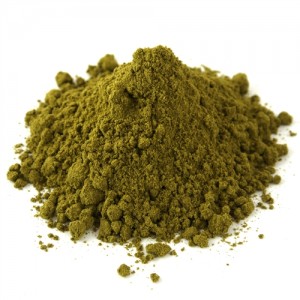 Hemp protein powder is the protein variation that many vegetarians turn to and offers good nutritional support as well. This protein will be higher in omega fatty acids and also contain some dietary fiber, so this can help to boost your satiety as well.
Hemp protein powder is the protein variation that many vegetarians turn to and offers good nutritional support as well. This protein will be higher in omega fatty acids and also contain some dietary fiber, so this can help to boost your satiety as well.
Buy 100% Organic Canadian hemp protein
For those who want the most health promoting protein powder variety, this would be the one to turn to as that omega fatty acid profile really ups its health benefits. Most people aren’t taking in enough omega fats in their diet, so this protein powder will remedy that quickly.
Benefits:
- “Clean”, not GMO (organic hemp)
- Contains all essential amino acids
- Contains EFA’s (essential fatty acids), vitamins, and minerals
- Environmentally friendly / sustainable (hemp)
- Contains fiber
- Vegan friendly
- Lactose and gluten-free
- Will not cause stomach upset like some powders
Drawbacks:
- Price
- Lower biological value (BV) than most other protein powders
- Contains fat and carbohydrates
Who it suits best: Anyone looking for a “clean”, nutrient dense source of plant protein.
Rice Protein Powder
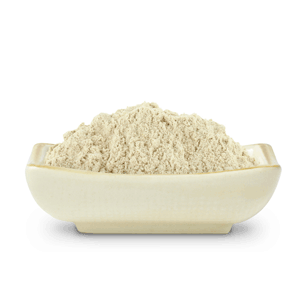 Rice protein powder is another option for those who are vegetarian, but note with this one that you will take in more carbohydrates, so it’s not as pure of a source of protein. In addition to that, it’s not a complete source of protein, so you’ll still want to aim to combine it with other foods or pea protein powder as well to get that full spectrum of amino acids.
Rice protein powder is another option for those who are vegetarian, but note with this one that you will take in more carbohydrates, so it’s not as pure of a source of protein. In addition to that, it’s not a complete source of protein, so you’ll still want to aim to combine it with other foods or pea protein powder as well to get that full spectrum of amino acids.
Buy 100% Organic brown rice protein (Canada)
This protein powder is very easily tolerated by most people with digestion issues, so is also a common choice for them to get their protein needs met. Additionally, rice protein contains an abundance of vitamin B-6, fiber, and other antioxidants.
Benefits:
- Price / availability
- Contains fiber, vitamin B6, and antioxidants
- “Clean”, vegan friendly protein
- Easy to digest for most individuals
Drawbacks:
- Not a complete protein (does not contain all essential amino acids)
- Stronger tasting than whey
Who it suits best: Anyone looking for an economically priced source of plant protein.
Soy Protein Powder
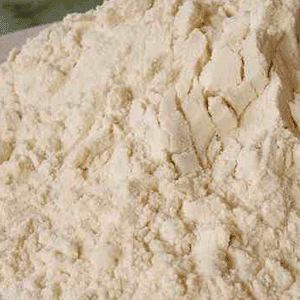 Soy protein powder is the third vegetarian protein potion and while there has been some controversy regarding soy intake, smaller amounts by both men and women appear to be alright. Men will want to tread a little more carefully when adding soy protein to their diet and should consider other options if they can.
Soy protein powder is the third vegetarian protein potion and while there has been some controversy regarding soy intake, smaller amounts by both men and women appear to be alright. Men will want to tread a little more carefully when adding soy protein to their diet and should consider other options if they can.
If you do choose to use soy, you will still get a good dose of protein and isoflavones. This protein is also higher in carbohydrates and fats than whey isolate powders, so the additional calories will need to be added to your total daily calorie intake.
Benefits:
- Lactose and gluten-free
- Easy to mix
- Relatively neutral taste
Drawbacks:
- Difficult to trust source (Over 90% of soy beans grown commercially are GMO)
- Potentially harmful chemicals (such as hexane) are produced when manufacturing many soy isolate products.
- Soy may hinder thyroid function
- Isoflavones have been linked to breast cancer, and lower testosterone levels in men
Who it suits best: Due to the drawback listed above, we do not recommend soy protein. Considering rice, hemp, or whey – all healthier alternatives.
Pea Protein Powder
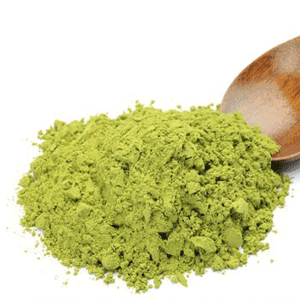 Finally, pea protein powder is the last variety to consider and is thicker in consistency like casein, so great for use in baking. It also offers a very fluffy texture and is a good protein for energy enhancement as it contains glutamic acid, which is needed for the conversion of glucose into usable energy by the body.
Finally, pea protein powder is the last variety to consider and is thicker in consistency like casein, so great for use in baking. It also offers a very fluffy texture and is a good protein for energy enhancement as it contains glutamic acid, which is needed for the conversion of glucose into usable energy by the body.
Like brown rice protein, this isn’t a complete protein itself, so try and combine it with other foods.
Benefits:
- Lactose and gluten-free
- Contains glutamic acid
Drawbacks:
- Price / availability
- Incomplete protein
- Taste
Who it suits best: Those who are unable to digest whey or casein protein, or anyone looking for a different plant based protein to add to their regimen.
Putting it All Together
As you can see there is an abundance of options when it comes to protein powders, and choosing the best option depends on your specific goals. For the vast majority if people, we recommend either a high quality whey isolate, Canadian organic hemp, or organic brown rice protein.
What is your favourite type of protein powder? Please let us know by leaving a comment below!
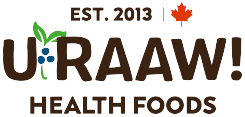
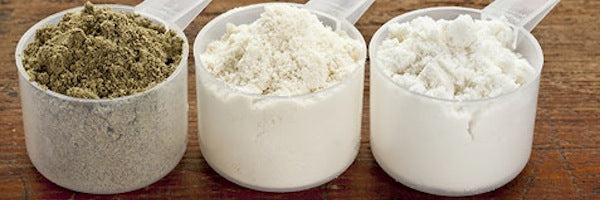
I like to make pancakes with hemp, sprouted brown rice, or whey isolate proteins.. usually I’ll mix the protein powder with wet ingredients such as coconut milk, pumpkin puree, olive oil, egg whites, or coconut oil. It takes some experimenting and my recipe usually turns out different each time, but it’s always a pretty solid tasting breakfast.